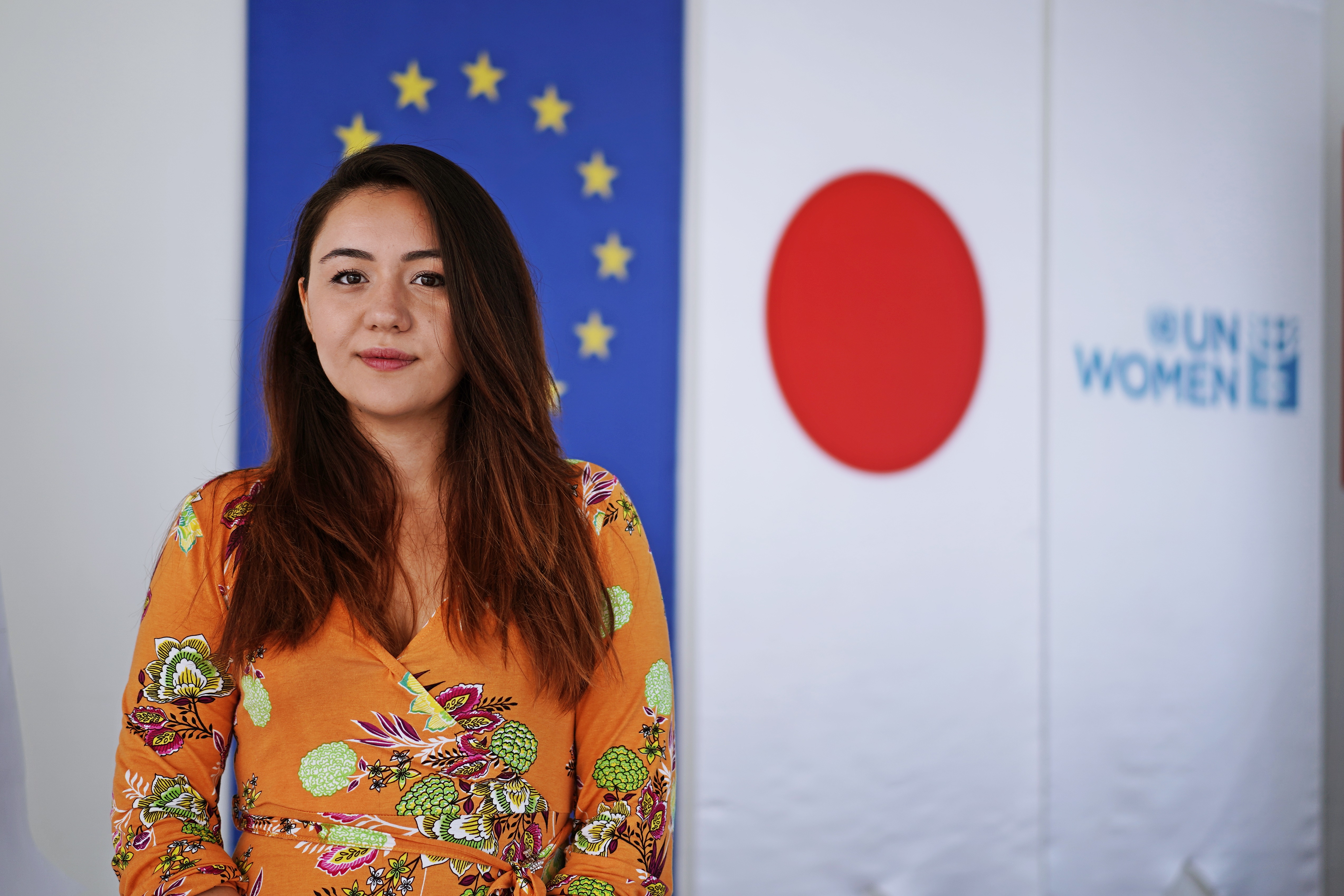In the words of Beyza Nur Azizoğlu: “I feel very lucky to work with refugee women despite all the challenges”
Date:

Beyza Nur Azizoğlu, a young lawyer, works at the SADA Women Empowerment and Solidarity Centre in Gaziantep (SADA) in Turkey near the border with Syria. Supported by UN Women and funded by the European Union Regional Trust Fund in Response to the Syrian Crisis (the EU “Madad” Fund) and the Government of Japan, SADA supports the empowerment of refugee and host community women, and their engagement in social activities as well as integration into the labour force. It is managed by the Association for Solidarity with Asylum Seekers and Migrants (SGDD-ASAM). At SADA, Beyza helps refugee women and girls by combatting cases of gender-based violence and child, early and forced marriages.
“I work at the SADA Centre to provide legal protection for refugee women and girls in collaboration with government authorities. I am committed to preventing violations of women’s rights, eliminating gender inequalities and helping empower women and girls through raising their awareness of their rights and providing them with legal counselling.
I have always wanted to become a lawyer to be able make a meaningful impact on the lives of men and women. Working with vulnerable women and girls helps me achive my dream. Counselling and supporting other women makes me feel part of the women’s solidarity movement, which in turn empowers me as well.
I have learnt from my experience that when a woman decides to stand up against gender inequalities and to defend her rights, it affects the lives of all women and girls around her. Seeing the result of our efforts encourages me to continue doing what we have been doing.
For example, I recently worked with the prosecutor’s office and the police until late at night to prevent an early marriage from taking place. The case was referred to us by one of our beneficiaries who had attended a session on preventing child marriage at the SADA Centre. She informed us that one of her neighbors was trying to marry off her 14-year-old daughter and that there would be a wedding ceremony that very evening. The family was hiding the the daughter before the wedding ceremony. Thanks to our persistent efforts, we were able to stop the marriage and help the child.
Another case I have worked on recently was that of a Syrian woman and her five children who were trying to build a new life in Turkey. The woman and her children had endured all kinds of violence by the husband and were all too terrified to speak out. Despite all the economic and psychological difficulties she faced, I saw courage and determination in her eyes.
We moved her and her family to a safe shelter temporarily and then we supported her to rent a flat. We also provided her with legal support in the case that she brought against her husband. Now, she is taking computer literacy courses and she is hoping to find a decent job to provide for her children and allow them to continue their education. She is determined to make a new life for herself and her children.
When I manage to have an impact on the lives of women who have been through such difficult times, I am filled with hope for the future. These women will be the founders of an equal world for all women and girls.”